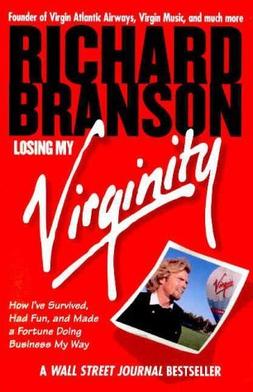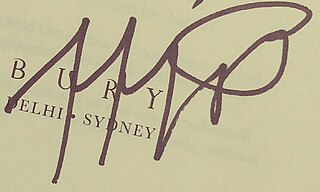
Olive oil is a liquid fat obtained by pressing whole olives, the fruit of Olea europaea, a traditional tree crop of the Mediterranean Basin, and extracting the oil.

Jeffrey Kent Eugenides is an American novelist and short story writer. He has written numerous short stories and essays, as well as three novels: The Virgin Suicides (1993), Middlesex (2002), and The Marriage Plot (2011). The Virgin Suicides served as the basis of a feature film, while Middlesex received the 2003 Pulitzer Prize for Fiction in addition to being a finalist for the National Book Critics Circle Award, the International Dublin Literary Award, and France's Prix Médicis.

Arbequina is a cultivar of olives. The fruit is highly aromatic, small, symmetrical and dark brown, with a rounded apex and a broad peduncular cavity. In Europe, it is mostly grown in Catalonia, Spain, but it is also grown in Aragon and Andalusia, as well as California, Argentina, Chile, Australia and Azerbaijan. It has recently become one of the dominant olive cultivars in the world, largely under highly intensive, "super high-density" plantation.

The Parable of the Ten Virgins, also known as the Parable of the Wise and Foolish Virgins or the Parable of the ten bridesmaids, is one of the parables of Jesus. According to Matthew 25:1-13, ten virgins await a bridegroom; five have brought enough oil for their lamps for the wait, while the oil of the other five runs out. The five virgins who are prepared for the bridegroom's arrival are rewarded, while the five who went to buy further oil miss the bridegroom's arrival and are disowned.

Kirkus Reviews is an American book review magazine founded in 1933 by Virginia Kirkus (1893–1980). The magazine is headquartered in New York City. Kirkus Reviews confers the annual Kirkus Prize to authors of fiction, nonfiction, and young readers' literature.

Losing My Virginity: The Autobiography is the autobiography of the British businessman Richard Branson. Published in 1998, it was later followed by other biographical books by Branson, including Business Stripped Bare: Adventures of a Global Entrepreneur (2008) and The Virgin Way: How to Listen, Learn, Laugh and Lead (2014).

Hanne Blank, also known as Hanne Blank Boyd, is an American historian, writer, and editor. Her written works include Virgin: The Untouched History, Straight: The Surprisingly Short History of Heterosexuality, and The Unapologetic Fat Girl's Guide to Exercise and Other Incendiary Acts.

Tom Bissell is an American journalist, critic, and writer, best known for his extensive work as a writer of video games, including The Vanishing of Ethan Carter, Battlefield Hardline, and Gears 5. His work has been adapted into films by Julia Loktev, Werner Herzog and James Franco.

Mary Pilon is an American journalist who primarily writes about sports and business. A regular contributor to the New Yorker and Bloomberg Businessweek, her books are The Monopolists (2015) and The Kevin Show (2018). The former is being developed into a feature film. She has also worked as a staff reporter covering sports for The New York Times and has also written for Vice, Esquire, NBC News, among other outlets.
Filippo Berio is a brand of olive oils exported from Italy and made of oil from Italy, Greece, Spain and Tunisia. The brand is used for virgin, extra-virgin and 'mild and light' oils, as well as wine vinegar, balsamic vinegar, pesto and olives.
Pompeian, Inc. is a food company that was founded in Baltimore in 1906 and produced America's first national brand of imported extra virgin olive oil. Today Pompeian offers a line of olive oils, including Robust Extra Virgin, Smooth Extra Virgin, Organic Extra Virgin, Classic Pure and Extra Light Tasting varieties. Pompeian has the number one selling extra virgin olive oil, olive oil, balsamic vinegar, wine vinegar and grapeseed oil, and offers a wide variety of cooking oils, vinegars, cooking wines and cooking sprays nationwide. Pompeian also carries several Organic products, including Organic Extra Virgin Olive Oil, Organic Balsamic Vinegar and Organic Red Wine Vinegar.

Olive oil regulation and adulteration are complex issues overseen and studied by various governmental bodies, non-governmental organizations, and private researchers across the world.
Unfiltered olive oil is an intermediate product of olive oil extraction. It is actually the initial cloudy juice of the olive drupes soon after crushing, separation and decanting and before final filtration. The oil is either filtered or stored in tanks to settle for weeks or months to allow sediments to be separated from the oil; this is known as racking. Once opened, unfiltered olive oil has a shorter life because the olive particles continue to ferment in the bottle.

Nocellara del Belice is an olive cultivar from the Valle del Belice area of south-western Sicily. It is a dual-purpose olive, grown both for oil and for the table. It is used to make "Valle del Belìce" extra-virgin olive oil, which is pressed from a minimum of 70% Nocellara del Belice olives. As a table olive it may be treated by various methods, one of which is named for the comune of Castelvetrano in the Valle del Belice; these may be marketed as Castelvetrano olives in the United States and elsewhere, and are large, green olives with a mild, buttery flavor.

The Picual, also known as Marteña or Lopereña, is an olive cultivar from Spain. Picual olives are the most commonly grown olive today for olive oil production, with production centered in the Spanish province of Jaén. Picual trees are estimated to account for 25% of all olive oil production in the world. Naturally, this varietal is very high in oil content, at 20-27% by weight.

The Bidni, which is also referred to as Bitni, is an olive cultivar from the Mediterranean island of Malta. The fruit is small in size, hearty with a "violet colour", and is renowned for its superior oil which is low in acidity. The latter is generally attributed to the poor quality alkaline soil found on the Maltese Islands. As an indigenous olive cultivar, the Bidni has developed a unique DNA profile, and is believed to be among the most ancient species on the island, triggering local authorities to declare some of these ancient trees as "national monuments", and as having an "Antiquarian Importance", a status which is enjoyed by only a handful of other species.

Pizza marinara, also known as pizza alla marinara, is a style of Neapolitan pizza in Italian cuisine seasoned with only tomato sauce, extra virgin olive oil, oregano and garlic. It is supposedly the most ancient tomato-topped pizza.

Why Buddhism is True: The Science and Philosophy of Meditation and Enlightenment is a 2017 book by Robert Wright. As of August 2017, the book had peaked at The New York Times No. 4 bestseller in hardcover nonfiction.

Growgirl is a 2012 book by former actor Heather Donahue about dropping out of Hollywood and moving to a semi-collective society in Nevada County, California's Sierra Mountains called "Nuggettown" to become first a "pot wife" then embrace the "backbreaking, spirit-sucking work" of a cannabis grower.

History Is All You Left Me is a young adult novel by Adam Silvera, published January 17, 2017 by Soho Teen.

















